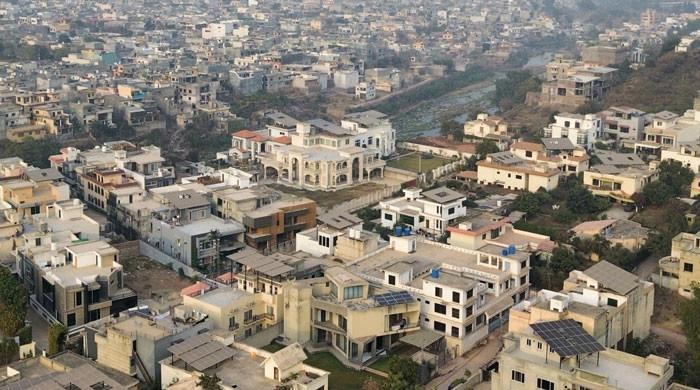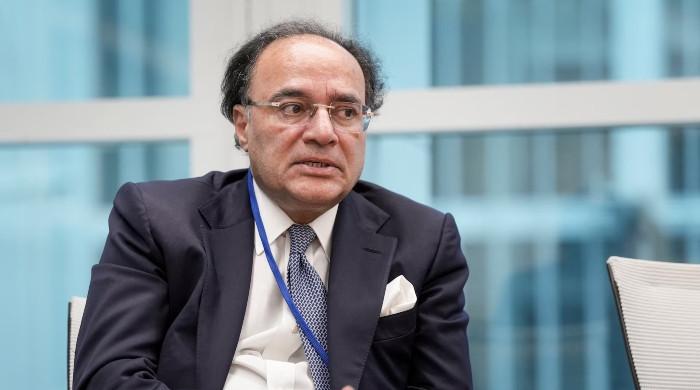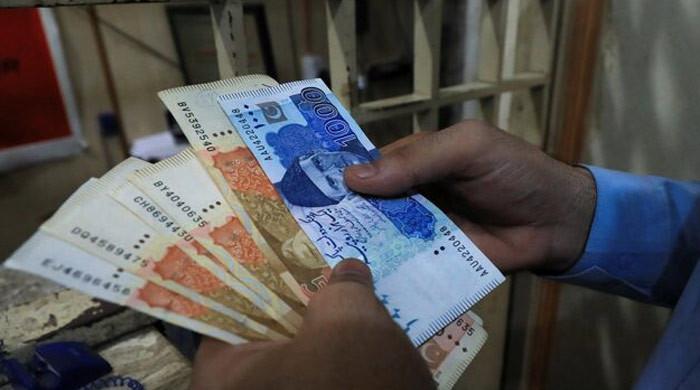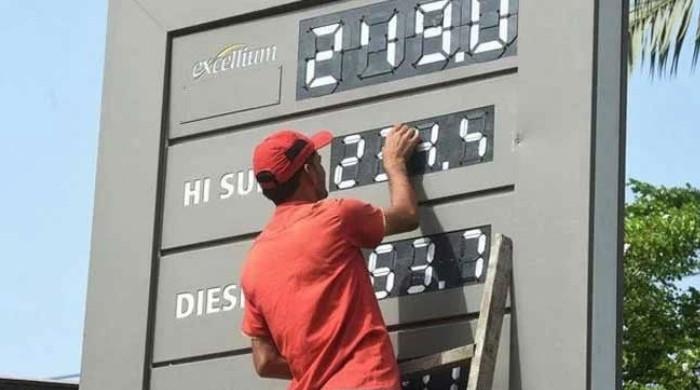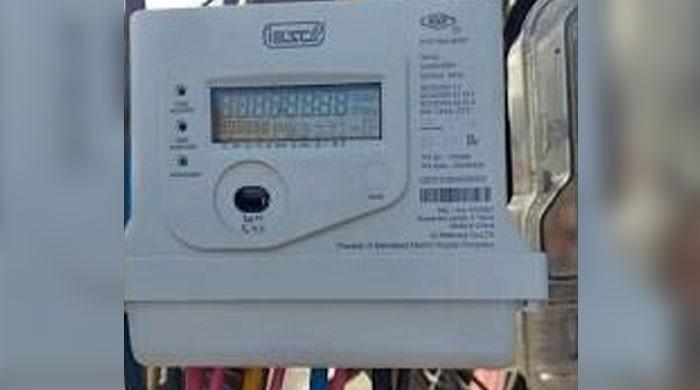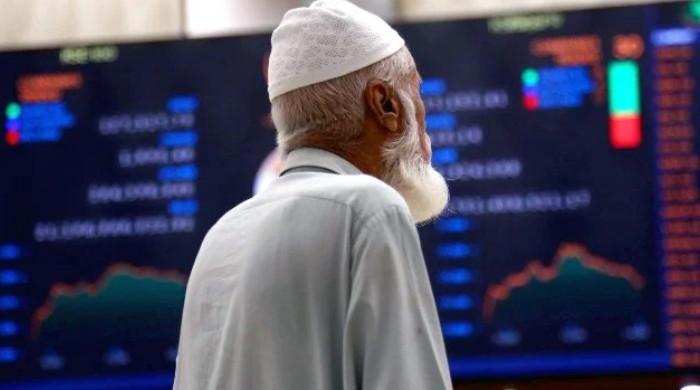Indonesia eyes making Pakistan an economic hub
Consul General Dr June says his country intends to extend diplomatic, economic ties with Pakistan
July 13, 2024
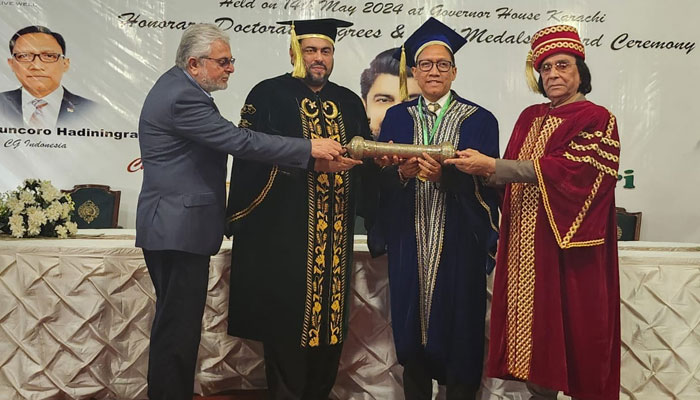
Indonesia has expressed its willingness to make Pakistan hub for its economic activities in South and Central Asia in a bid to build upon the "excellent" bilateral relations.
Outgoing Indonesian Consul General Dr June Kuncoro Hadiningrat told this scribe that his country intends to extend diplomatic, economic, social and cultural relations with brotherly country Pakistan to the highest possible level.
It’s a highly ambitious project as currently, the trade volume between the two countries is not very impressive. It is almost close to the official trade volume between Pakistan and Iran ($2.3 billion in 2023).
Yet, there is an uptrend potential for positive growth. After all, Pakistan is Indonesia’s 6th biggest trade partner in Asia.
Till April 2024, Indonesian exports to Pakistan were recorded at $817.6 million and import from Pakistan around $209.6 million. In 2023, the trade volume stood at $3.34 billion while in 2022, it was $4 billion.
Hence, this year bilateral trade is expected to reach around $3 billion. It is important to note that almost 20 years ago, it stood at merely $0.7 billion. And gradually it is moving toward an upward trajectory.
This largest country of Southeast Asia exports a number of items including coal, paper board, chemicals and spare parts to Pakistan. However, Palm oil makes 90% of Pakistan’s total imports. It’s understandable as Indonesia is one of the biggest palm oil exporters of the world.
Last year, Indonesia had exported almost $22.67 billion worth of palm oil globally. After India and China, Pakistan stood as third top importer of this commodity. Comparatively, the figure was slightly higher in 2022 as it had crossed $3 billion mark then.
Indonesia imports textile, rice, leather goods, pharmaceuticals products and sea food from Pakistan.
It is interesting to note that Indonesia which literally means "India Island" as it consists of 17,000 Islands and produces almost 6 million tonnes of fish annually (worth $30 billion), imports marine products from Pakistan.
As a matter of fact, the exotic taste of Pakistani sea food serves as a delicious treat to the Indonesian people.
In order to facilitate trade, a preferential trade agreement (PTA) exists between the two countries for the last 14 years.
According to an official document, "Indonesia offers market access along 232 tariff lines, of which 103 are zero rated. Items in the preferential list include fresh fruits, cotton yarn, cotton fabrics, ready-made garments, fans, sport goods, leather goods and other industrial products."
As per Pakistan embassy in Jakarta, Islamabad offers "313 tariff lines that includes items such as edible palm oil products, sugar confectionary, cocoa product, chemicals, kitchenware, rubber, wood, glassware and electronic products."
Jakarta also intends to buy Pakistani wheat to make noodles at a very large scale. However, a number of factors hamper bilateral trade.
A top Pakistani trader who wanted to remain anonymous told this scribe that not only tariff but also some IMF conditions limit impex.
An Indonesia trader stressed for liberal visa regime as "sometimes it takes weeks or even months to get visa for Pakistan". He listed "law and order situation and restriction on movement" as some of the other factors that discourage investment.
However, Dr June is hopeful that, "spirit of forging better ties will prevail." He said: "Indonesian traders are enjoying excellent relations with Federation of Pakistan Chamber of Commerce International (FPCCI) and Karachi Chamber of Commerce International (KCCI)."
The outgoing Consul General mentioned: "We encourage Indonesian businesspersons to invest in other countries and Pakistani businessmen should also approach them for B2B meetings."
Harboring good intensions in heart is an important factor in promoting economic ties but diplomats say that "Excellent relations depend upon global situations and people in power".
The outgoing consul general was of the view that "it is time to bank upon the strong will that exists between the leaders of the two countries and utilise the opportunities offered by the geopolitical factors."
The outgoing Indonesian Consul General has served in Sindh for the last three years. Recently, he was awarded an Honorary Doctorate degree and Gold Medal.
The special convocation ceremony was held in the Sindh Governor House to recognise "the role and achievements of Dr June in advancing and enhancing Indonesia-Pakistan cooperative and friendly relation, especially in the fields of economic and trade diplomacy, as well as social and cultural diplomacy".
Recalling that moment, Dr June thanked Governor Sindh Tessori for his kind gesture and said: "Decorations come in different forms as you continue to promote better interactions with the people of the host country. He expressed hope that his efforts will bear fruits and 'Will become a funnel for continuing to improve relations between the two countries'."




